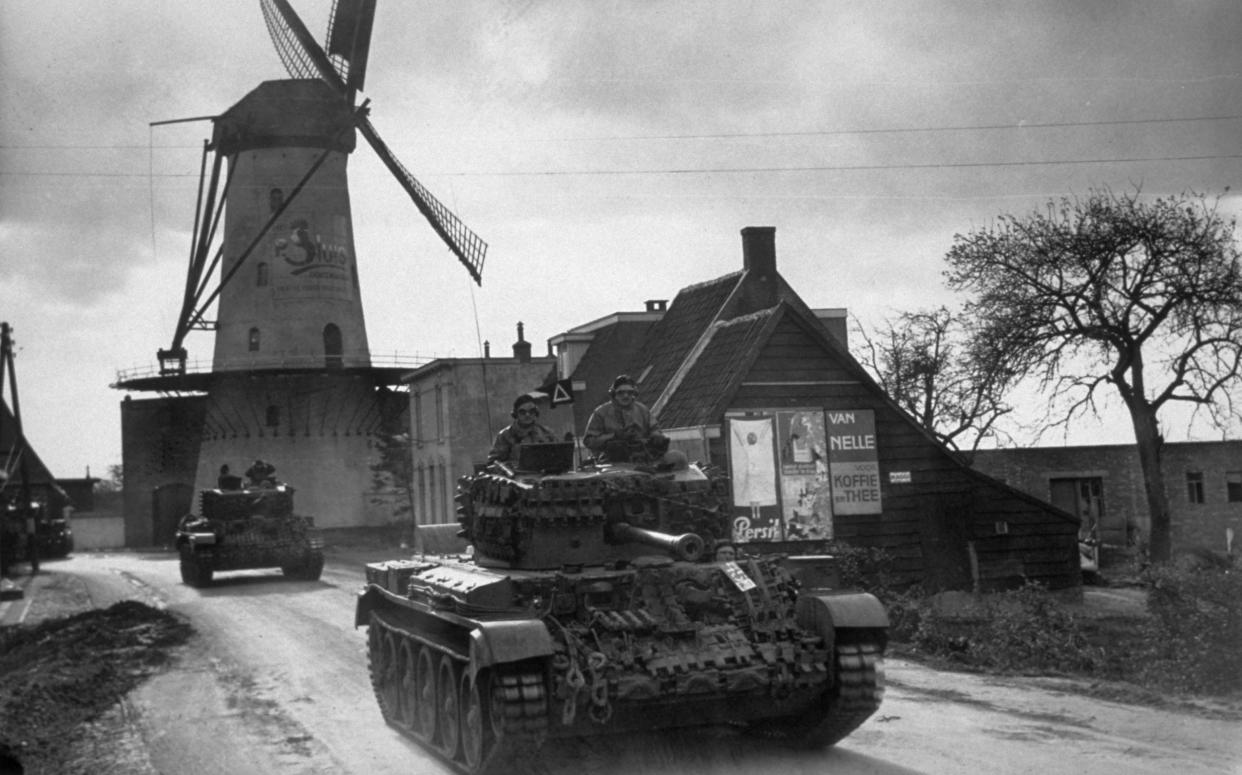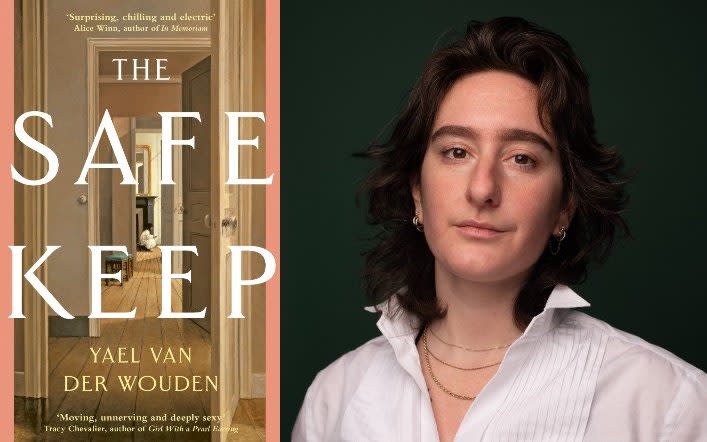A Dutch lesbian romance in the shadow of the Holocaust

- Oops!Something went wrong.Please try again later.
The Safekeep, Yael van der Wouden’s twisty debut novel, opens with an apparently mundane scene. In the summer of 1961, a young woman named Isabel finds a buried ceramic fragment while gardening at her family home in the Dutch countryside – where she still lives, now alone, her parents long since dead and her siblings having flown the coop. She recognises the pattern from a set of crockery in the house, although she doesn’t remember any of the pieces ever breaking.
It’s a minor puzzle, quickly set aside when bigger problems arise: Isabel’s eldest brother Louis, who owns the house, announces that his new girlfriend Eva will be staying there while he is away on business. At first, the buttoned-up Isabel can’t stand Eva, or indeed any intrusion upon her rigorously controlled and isolated existence. But gradually her hostility mutates into sexual desire. The two women embark on a passionate affair. No time to fret about broken pottery now.
Van der Wouden first came to attention with her 2017 essay On (Not) Reading Anne Frank, which recounted her experiences of anti-Semitism after moving as a child, in the 1990s, from Israel to the Netherlands. (At school and university, she was repeatedly told she looked like Anne Frank, the most famous of Dutch Jews.) The Safekeep initially seems like a departure: a historical novel about forbidden queer desire in the post-war period.
Isabel, whose perspective is conveyed via the close third-person for most of the novel, goes to church every Sunday. Her family moved to the east Netherlands in 1944 to escape the famine in the west. The Holocaust and the fate of Jews who survived it: these aren’t things she thinks about. But Van der Wouden’s clues aren’t particularly subtle. From that opening scene, it’s obvious that Isabel doesn’t know the real story of the fully furnished house she has occupied for the past two decades. Eva, meanwhile, has dark frizzy roots that show through her bleached-blonde hair, is vague about how or when her parents died, keeps a carefully guarded diary, and once tells a story about some fancy plates that were broken during a birthday party at her childhood home.
It takes Isabel longer than the reader to work out what’s going on, probably because she’s so preoccupied by the awakening of her erotic desires. There are copious sex scenes, narrated with a choreographic precision that can sometimes have the inadvertent effect of making you feel like you’re reading stage directions. (An example: “They were at eye level like this: Isabel kneeling, Eva perched on the bed’s edge.”) In general, Van der Wouden’s prose is tightly worked, but she’s prone to overdoing the details, particularly when describing the weather: the sun “spread[s] her arms wide open”, and on a windy day the trees are “gossiping with shaking leaves”. And yet the story of Isabel and Eva’s secret affair, and all the complications that emerge from it, remains compulsively readable, carrying you through to the sudden shift in perspective in the third act, when Isabel decides to read her lover’s diary.

The final section of The Safekeep draws on historical research – some of it relatively recent – into how Jews were treated in the Netherlands after the Holocaust. As well as revealing her own story, Eva’s diary entries include horrifying accounts of friends who survived the concentration camps and returned home only to be landed with bills from the Dutch government – for “outstanding taxes” on unoccupied properties, or debts accrued while recovering in Switzerland – which plunged them into poverty.
Yet, as Van der Wouden told us in 2017, the Dutch have never shown much guilt. It takes falling in love with a Jewish woman for Isabel to wake up to what her family, and others like them, have done. Even so, in the end her political awakening didn’t seem, to me, as successful as her sexual one. I wondered whether Van der Wouden had felt compelled to give The Safekeep the kind of ending that befits a queer romance of today. Such an ending may be satisfying; but it may also stop us having a proper reckoning with the past.
The Safekeep is published by Viking at £16.99. To order your copy for £14.99, call 0808 196 6794 or visit Telegraph Books

